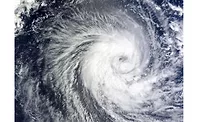EPA gives out $4M in grants to aid Universities in researching natural disaster impact & planning

As part of its 50th anniversary celebration and recognition of Environmental Emergency Preparedness Month, the U.S. Environmental Protection Agency (EPA) announced $3,997,876 in funding to five institutions to conduct research to build resilience in communities and among groups, including children and older adults, that are more vulnerable to the potential environmental impacts of natural disasters. Researchers will investigate topics such as understanding the effect of major coastal flooding events and identifying the most promising infrastructure solutions to reduce hurricane and flood-related industrial contaminant releases and exposures.
Iowa State University of Science and Technology (ISU) in Ames, Iowa, was awarded an $800,000 grant through EPA’s Science to Achieve Results (STAR) Program for a research project on building resilience in vulnerable, older adult communities facing increased exposure risks to wastewater contamination from flooding in Puerto Rico.
“As a nation, it is our duty to protect those among us who are the most vulnerable, particularly children and older adults,” said EPA Administrator Andrew Wheeler. “These grants will help protect our communities and provide the information they need to be prepared and stay safe.”
Research conducted by universities furthers preparedness efforts by aiming to understand how communities can become resilient to risks and protect the health and wellbeing of their most vulnerable groups – young children, older adults, and those who are less amenable to evacuation or relocation during disasters.
Dr. Kaoru Ikuma, ISU Department of Civil, Construction and Environmental Engineering, leads the research project that aims to improve the scientific understanding of how flooding can elevate the risk of exposure to wastewater-related contaminants among older adults in Puerto Rico. The outputs of this project will provide spatial information on contamination, psychosocial, and infrastructure vulnerabilities to risks associated with flooding, which will then be used to plan interventions for increasing resilience in the vulnerable, older adult populations. The ISU research project hopes to analyze and widely communicate the health risks of coastal flooding of contaminated sites on vulnerable communities to inform land use and disaster planning efforts.
The four other universities receiving grants through EPA’s Science to Achieve Results (STAR) Program for this work include:
- Duke University, Durham, North Carolina, to assist communities in developing comprehensive strategies for building resilience to contaminant releases associated with natural hazards.
- Texas A&M University, College Station, Texas, to improve the resilience of underserved communities in Houston to hurricane- and flood-induced releases of metals and volatile organic compounds (VOCs) from industrial facilities.
- University of California – Los Angeles, Los Angeles, California., to understand the exposure risks that coastal flooding poses to vulnerable communities due to unintentional releases of hazardous materials from contaminated sites.
- University of Florida, Gainesville, Florida., to understand the effects of flooding caused by extreme weather events on PFAS distribution and transport and how societal factors can exacerbate the impacts of PFAS exposure.
Looking for a reprint of this article?
From high-res PDFs to custom plaques, order your copy today!






